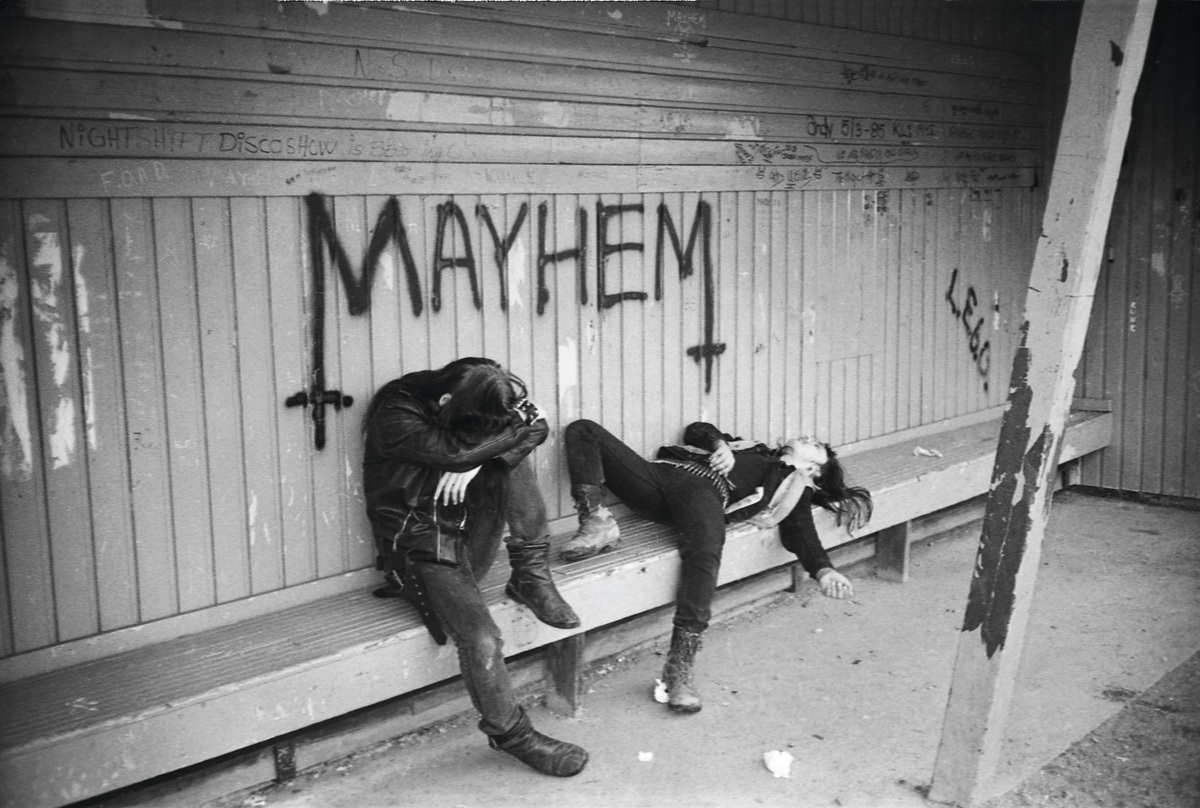“There are very few bands in the history of rock & roll that are undeniable as genuine innovators,” writes Thurston Moore in the afterword to The Death Archives: Mayhem 1984-94. “Mayhem is one of them.” Formed in Norway in 1984 and recognized as the most influential black metal band in the world, its is a group whose story has, over the years, grown so big, so notorious, it often seemed in danger of swallowing the band up entirely. Arson and extremism; the suicide of corpse-paint wearing singer Pelle “Dead” Ohlin and murder of guitarist Øystein “Euronymous” Aarseth by then bassist Varg “Count Grishnak” Vikernes (all ahead of the release of 1994 debut De Mysteriis Dom Sathanas).
If you want that story — brutal, sensationalist, splashed across Norwegian front pages in the church-burning frenzy of the mid-nineties — you can read any number of books or articles on the subject, each with their own associated baggage. If you want the story of the true Mayhem however — of the ketchup-obsessed kids interrailing to gigs across Europe; of the genuinely thrilling early line-up behind classic EP Deathcrush (1987); of the teenage Venom fans who began with trading cassettes and ended up kickstarting a global phenomenon — then you need only this, The Death Archives: Mayhem 1984-94.
Written by the band’s sole surviving original member Jørn “Necrobutcher” Stubberud, Death Archives is not only the story of a truly groundbreaking band, but the story of Norway, of nature, of black humor and, for all the turmoil that would follow, friendship. “When I read it afterwards I thought, okay, I gave as much as I could,” says the bassist from his Oslo home. “That was my feeling. I was on the border a couple of times where it got very personal. But it had to be.”
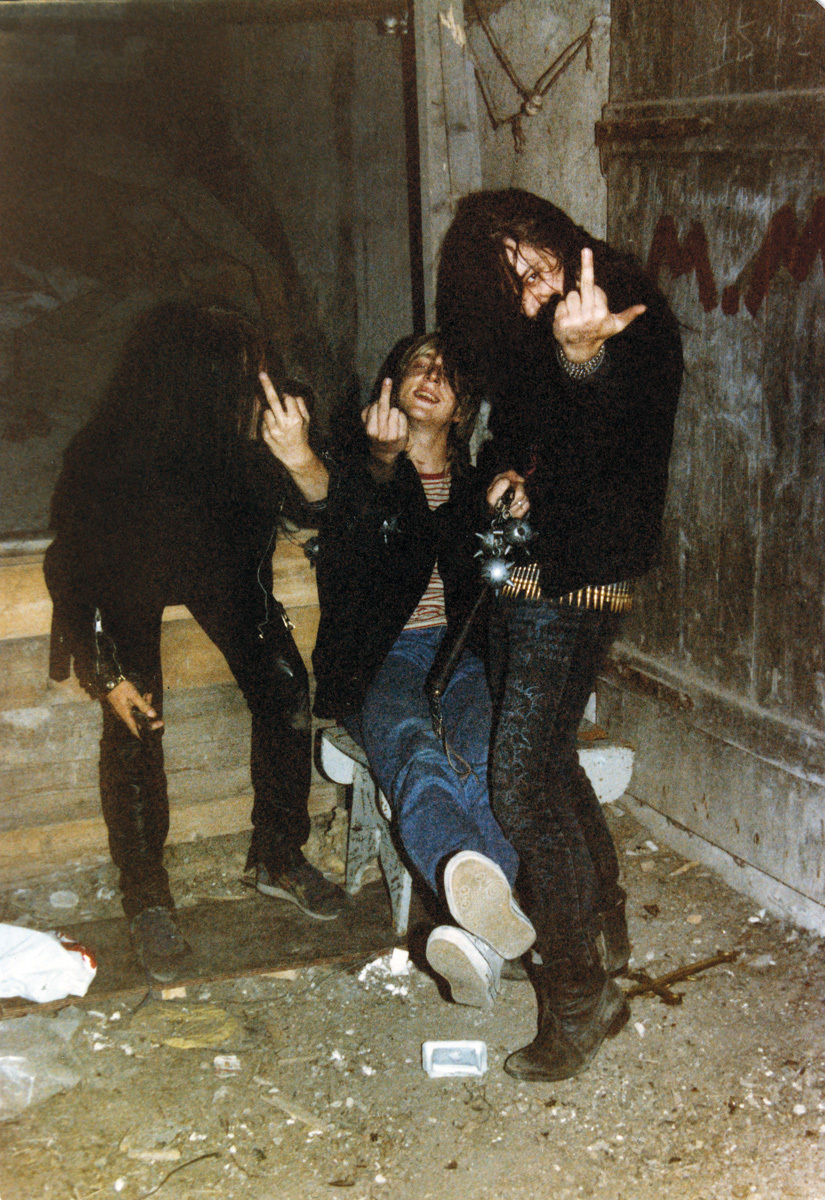
Was it strange looking back over everything?
What happened to me and Mayhem in the past was some unfortunate incidents, you might say, in the early 90s. And it’s been a struggle to get the recognition afterwards, even though we put out album after album, world tour after world tour. But it seems like, over the last 10 years, people have begun to pay attention to the music and not just reading those stories. So for me, talking about myself, about what happened, it’s cool to know that people are still interested in the shit that we did 25 years ago. Instead of trying to teach people or instead of trying to explain to people what happened, I just wrote down exactly what did happen. That’s what this book is about. This is what I remember from ’84 to ’94.
What’s really apparent in the book is how fun it seemed back then. You were a bunch of kids, swapping cassettes, interrailing to gigs…
Yeah, absolutely. This was our lives. We woke up in the morning and it was the first thing we were thinking about. Everything we did was about the music, about the band. It was all consuming. And it has been my whole life, really. People ask me if we’d still be going if we hadn’t had any commercial success and I think to myself, yeah. We’d probably be at a rehearsal place every weekend because we love it. We’d have done it for free.
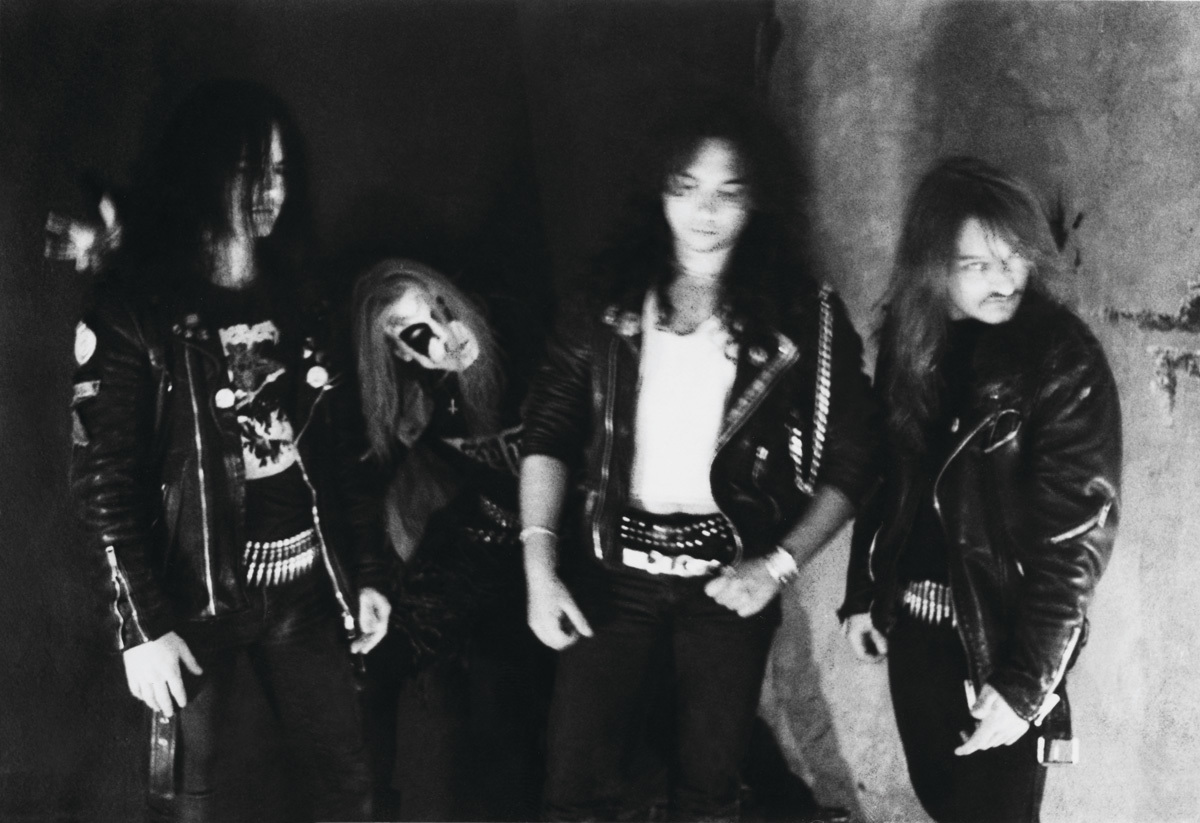
What was the original aim?
Well, when I grew up I always thought that I would be a musician. I always knew that. I started my first band when I was twelve and playing with different people and then when we hooked up with Øystein [Euronymous] in ’84, then everybody, me and my drummer especially, we knew that we had it. No question about it. And that feeling has kind of stuck.
You knew you had it, but did you realize just how different what you were doing was?
You never know these things yourself. It’s other people who tell you these things. For us it was all consuming. We went in with everything we had. It wasn’t constructed to be popular, it wasn’t constructed to be underground. It just came out this way. Obviously, people hated us and then we started to embrace that. Everyone was hating us and it was like, yes, it’s great to be hated! And we took all the negative the vibes we got and put it into the band in a way. Adding that up. Of course the path we were on was a little bit self-destructive and it was a dangerous path as everyone knows what it lead up to. But it was not a conscious thing. There was not a conspiracy behind it. We were just playing aggressive music. Dark, aggressive music.
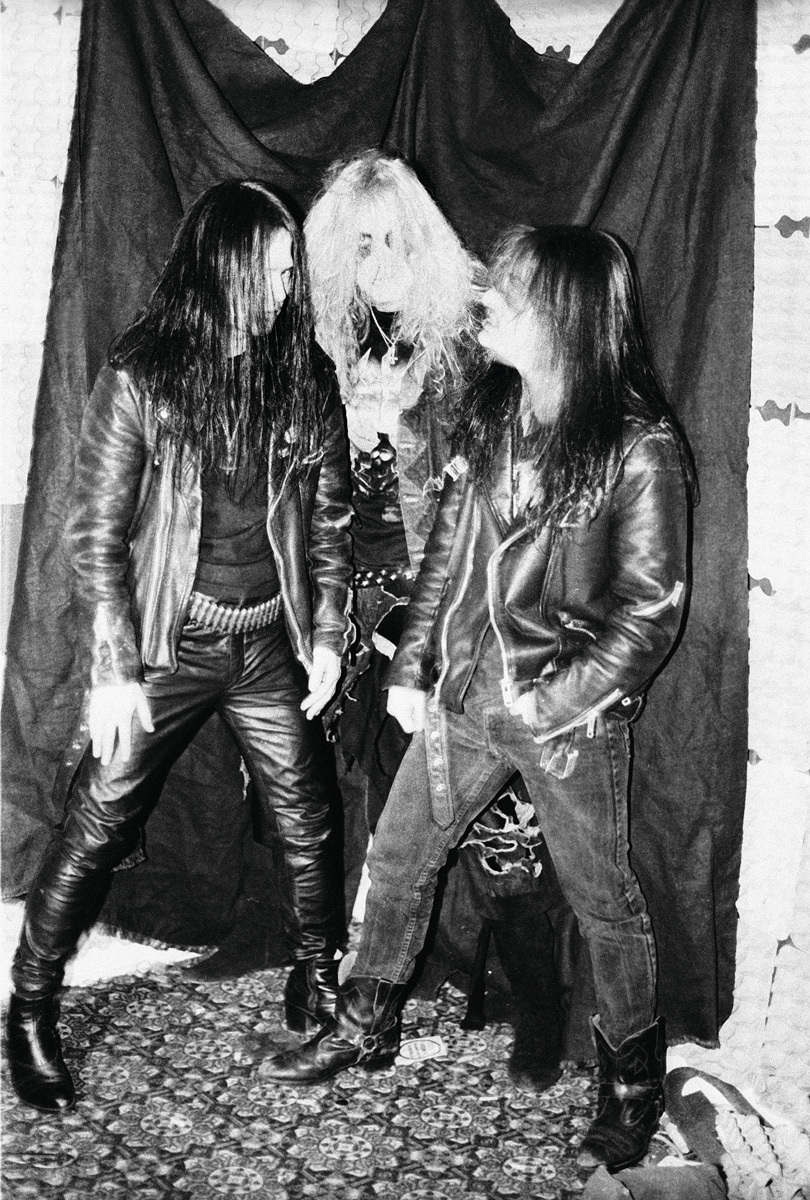
Do you think there’s something about the Norwegian personality that contributed to the sound you were making?
We are quite isolated here in Norway. It’s dark, it’s cold in the winter. It’s a hard place to survive. And I think these people that found this to be their home were kind of, a little bit, cold in a way. They liked isolation, That’s why the settled here. And this is our genes, going through the generations. That we are a little bit special people up here. Cold. They don’t exchange any smiles. It’s not like you grab people with a kiss on the cheek. You don’t say hi to the guy walking past in the street. So, when we start to make music, this is the music that came out. This is what our metal music sounds like. It’s not happy music. It’s not a sing-a-long thing. It’s darker than that.
What about the country itself at the time?
The country was, at that time, almost like a communist state. We were very religious. Everything that was fun was not allowed. Alcohol, fireworks, pornography, shotguns. Everything. We started collecting illegal films the Norwegian government had banned like The Evil Dead and Bad Taste. Records that were legal in Germany and completely illegal here in Norway, like Mace and Switchblade. So we were just into everything that was illegal, against society. And since we were so very religious here in Norway and nihilists saw the light, in terms of there is no god. You know, this is just some kind of mass control thing. And that people still believe in this evil, stupid thing was kind of a strange thing for us to see — that people that we respected, like our teachers at school, prominent members of society and stuff, were Christian and really believed in this shit! And when we asked questions about it, they got defensive. And we liked that! Of course, not many years afterwards, Norway separated the church and the state. And I think people like us have a big honor for bringing that about, enlightening people so to speak. But we were doing it for being wrong! We wanted to be against society. Now we’re mainstream! It’s a weird thing.
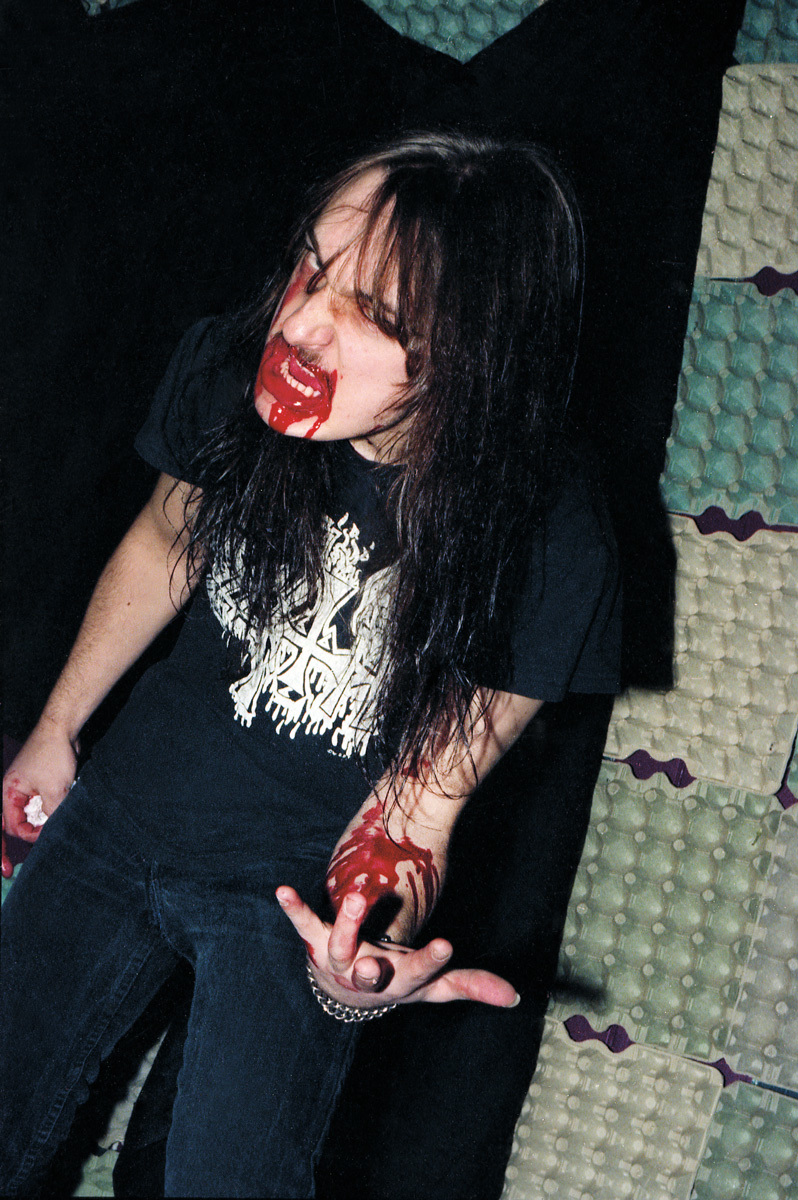
Those ideas of shocking people, doing it for being wrong… Do you ever look back and think, maybe we went too far?
Yeah. Absolutely. But I don’t dwell over it. You think sometimes you should have done more, sometimes you should have done less. But that’s the same thing with everything in life. You would have second thoughts about everything. But back to your question of why this group came about, I’m proud of what we did and I’m proud to say that I still believe in the same thing. I was right, in a way. Even when I was young I knew exactly what was going on and talking about it now, I’m glad people are still interested. It’s a great thing.
Have you noticed a shift in how people talk about black metal? There seems to be a growing appreciation of the genre as genuinely avant garde…
That’s true. This type of music, first it came out very primitive, because all art is primitive at the very beginning. And then other people come in, they get inspired and create different angles. And that’s what’s great about black metal, that it has been interpreted every way imaginable. And then some. It’s still evolving. All these things came and went. Punk, Nu Rave, Hairspray. But we have this rise all the time. Slowly climbing. And that’s what’s built the respect over the years. We didn’t wimp out or jump on the bandwagon. And still people come up with new ideas.
Another thing I’d like to say, since Venon came out with the album Black Metal, we never thought about calling our music black metal. It was in the late 80s that people started to say to us that we play black metal. We would always say, no, that’s Venon. But more and more people start to write that we are playing black metal and, in the end, in the record stores, they would have this special place just for black metal. So that’s an interesting thing. I still think today that black metal should be aggressive music with some kind of Satanic lyrics. And we have never been about that. We sang about Satan and stuff in the 80s but from a splatter movie point of view and for the “fuck off” to religion then. But after that we never bothered because we are not interested in religion. Believe it or not. We are anti-religion. We saw very early that religion is a mass control thing.
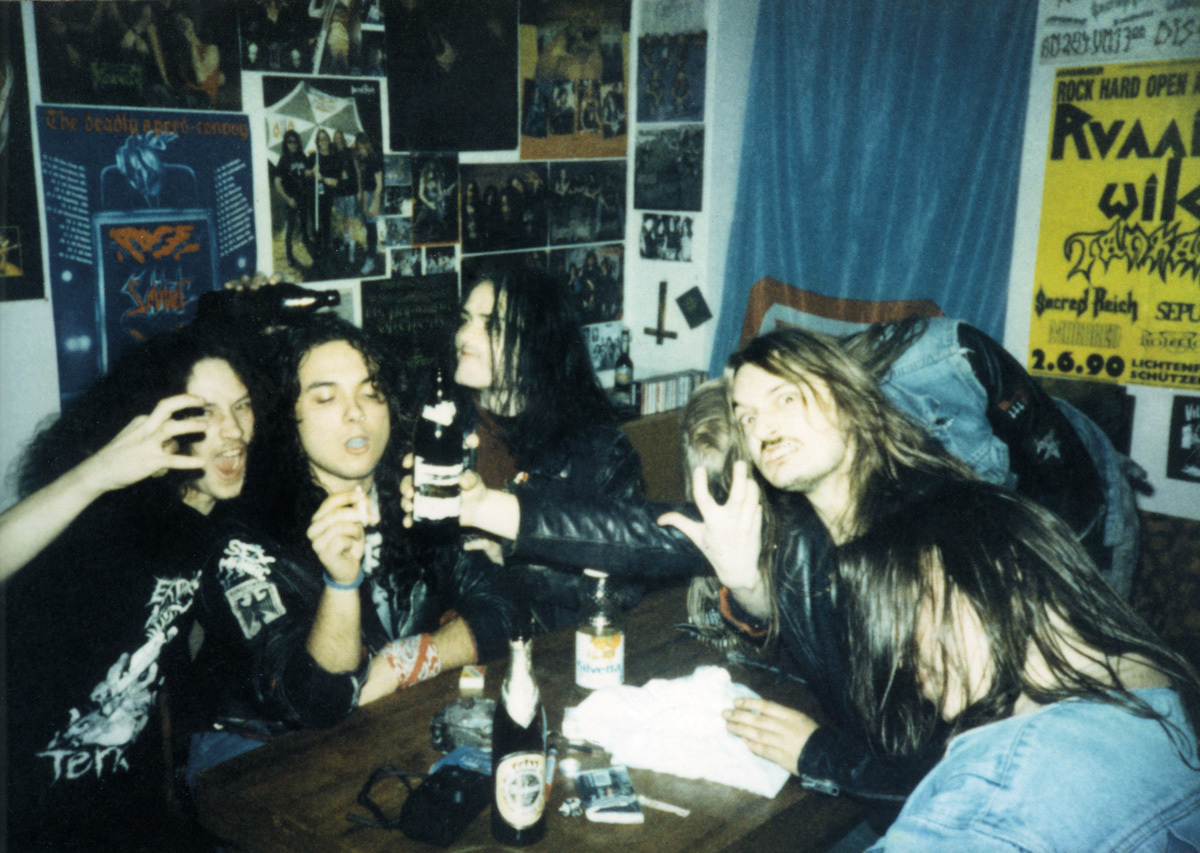
Does it frustrate you that the whole Satanic thing is how a lot of people think of the scene?
That’s an easy thing for people to say. Or the easiest thing for people to say that you hear all the time is, oh, it’s so noisy! Well, there’s a volume button on your stereo where you can turn it down! It’s loud? Just turn it down! That’s another way to disguise that they don’t understand what’s going on. There same with me also with opera, when they sing in Latin or Italian or whatever. You don’t get it. It’s meaningless, this beautiful art. You know, sometimes the art is there to confuse you. To ask questions. And people don’t take the time to do that. When you’re opening a bag of chips and you don’t like the first flakes, you don’t empty the box, you know?
But particularly with your band, because your story is so big, so well known… Has your sound ever become a secondary consideration to people?
Absolutely. But you know, I separate these type of people. And now everybody knows the story, it’s not so shocking anymore. Journalists are more interested in the shows and stuff like that. But, you know, I don’t have any problem talking about myself! Who wouldn’t? Next topic, talk about yourself. Sure, why not! So you can never run away from your past. We are proud of our past. Of course there was some tragic stuff that happened but when you think about it, this is a big clue here, when a musician dies, especially under tragic circumstances, it’s a special thing, because it happened to me too. Some of my favorite bands I’ve been listening to. If somebody in that band dies, then when I’m listening to the music afterwards, it sounds different. Something happens with the music. And a lot of people have that feeling with my band but I didn’t think about it because it was my friends, you know? It was so close to me, I didn’t see it from the outside.
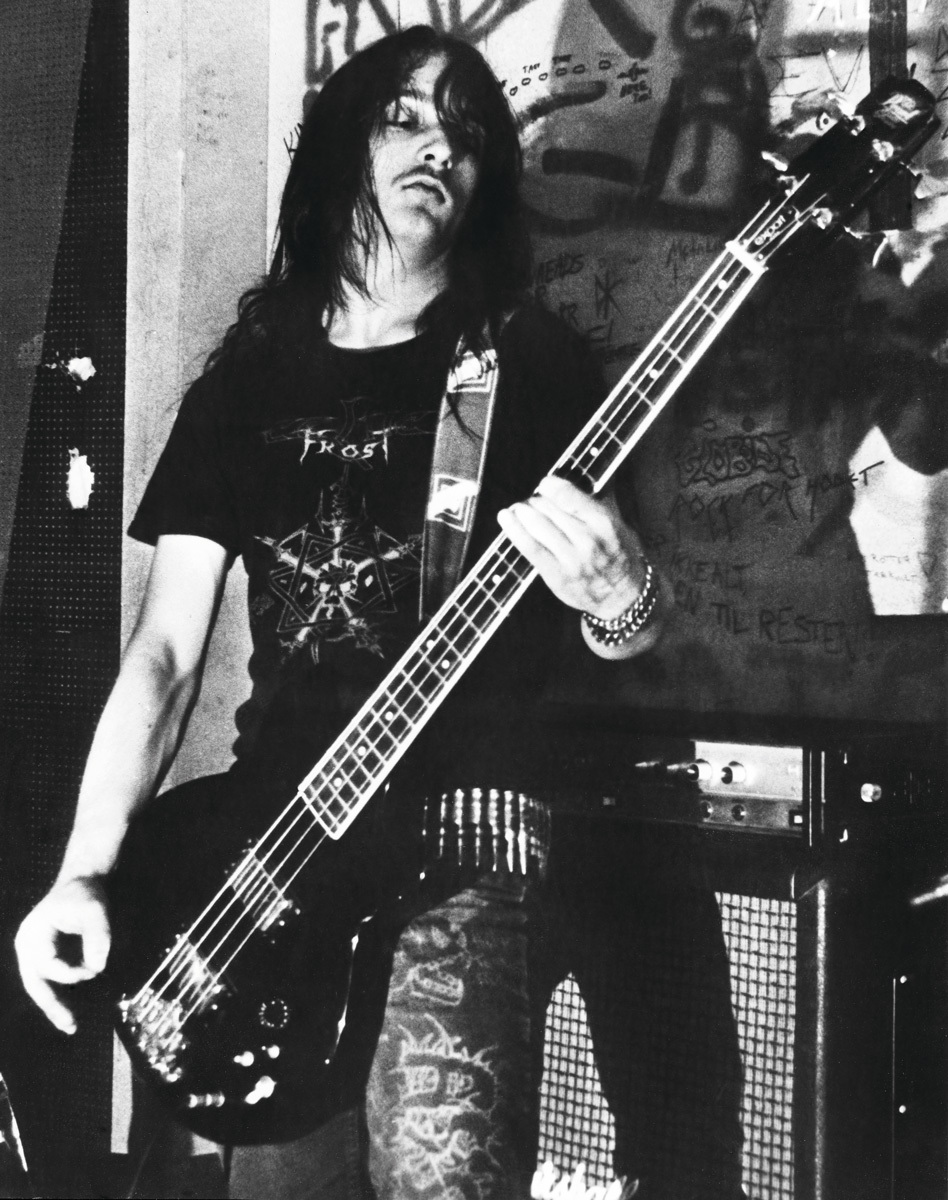
That why the book works so well… It shows the band behind the myth.
I didn’t want to preach to people. I didn’t want to try to put ideas in people’s heads or try to explain what happened. I just told what happened. And it’s easier then for people to make up their own opinion on what happened in a psychological way. That’s the whole thing with this book. Everybody’s preconceptions are that this book is about other things than it’s about. So when people read this book they get very surprised and even, maybe shocked, about what it’s not about. It’s not about anything the newspapers wrote about at all. But, at the same time, it’s all about that. It’s exactly what happened. Putting a glimpse into what we were doing what we were thinking, what kind of music we liked, we kind of food we ate, everything. Not trying to explain anything. Just tell it.
The Death Archives: Mayhem 1984-94 is out now via Ecstatic Peace Library.
Credits
Text Matthew Whitehouse
